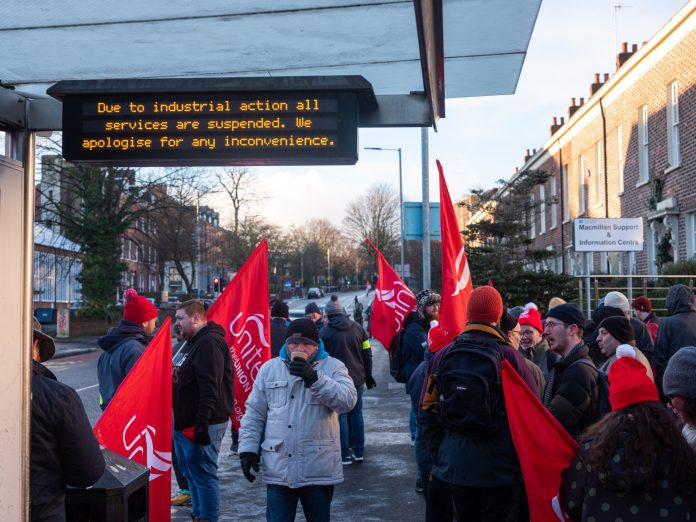Mass strikes by tens of thousands of public sector workers are expected in Northern Ireland on Thursday.
About 15 unions representing teachers, civil servants, nurses and transport workers are expected to take part in the rallies.
The Irish Congress of Trade Unions estimates that 170,000 of the 220,000 unionised public sector workers will walk off the job to demand delayed funds for pay rises.
The mass strike, a “co-ordinated day of action” described by unions as the biggest since Northern Ireland was founded in 1921, could wreak havoc on public services.
Educational establishments will be closed and transport services shut down as several hundred workers from services that clear roads during the winter are expected to join the strike, which coincides with the onset of cold weather.
The strike, which is estimated to cost the economy more than 10 million pounds ($12.6 million), comes at a time when political deadlock in the region is approaching its two-year mark.
In February 2022, the largest pro-UK party, the Democratic Unionist Party (DUP), withdrew from the Northern Ireland Assembly at Stormont over post-Brexit trade rules it believes undermine Northern Ireland’s place in the overall UK structure.
The DUP has lost its seat as Northern Ireland’s largest party in the 2022 election, losing its position as first minister in the executive to Sinn Fein nationalists who want a united Ireland.
British Northern Ireland Affairs Minister Chris Heaton-Harris said on Monday that the £3.3bn aid package offered to the parties last month would be granted on the condition that the assembly resumes.
However, the statutory return deadline expires on Thursday – the lawmakers failed to elect a speaker for the seventh time as no candidate was able to garner the necessary support.
Of the 3.3 billion pounds submitted for consideration, 584 million pounds is earmarked for public sector pay rises.
